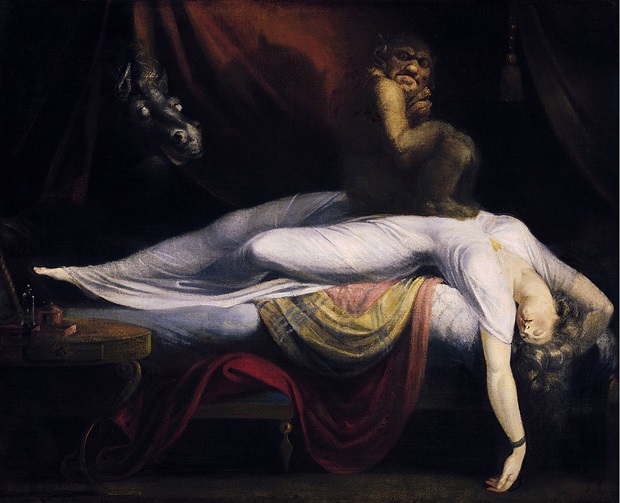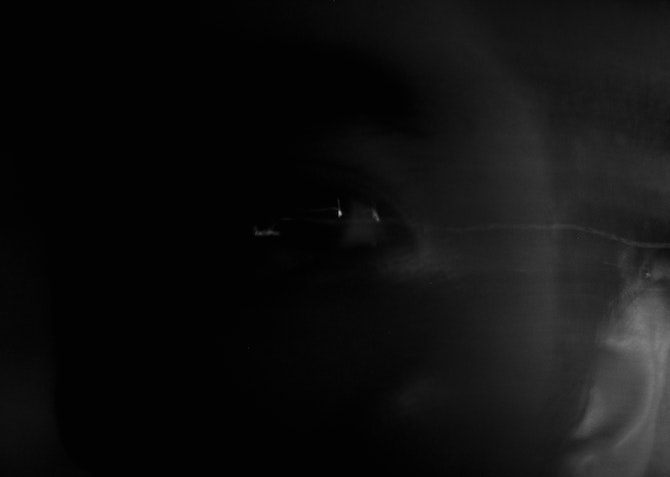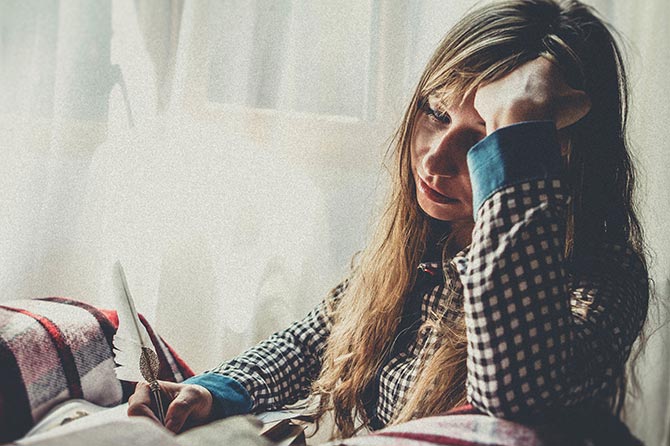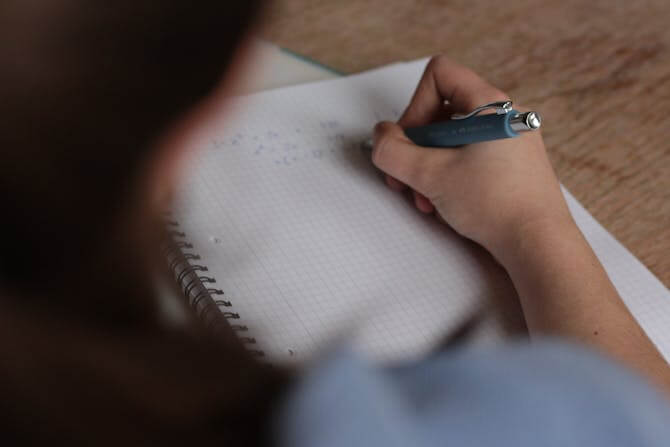
Do You Suffer From Sleep Paralysis?
In those moments whilst falling asleep or beginning to wake up, have you ever felt unable to move or speak for a short period of time? If you found it a frightening experience you may well have experienced the phenomenon of Sleep Paralysis.
What is it?
This phenomenon can affect people of all ages and the frequency of attack seems to be linked to a combination of genetics and sleep disturbance. It’s not harmful in a medical sense and the attacks themselves pass in just a few seconds or minutes at the most, but are extremely frightening for the person suffering.

Episodes occur during the transitional state between wakefulness and sleep. During an episode sufferers are aware that they are still in their bedrooms, but may feel as though there is a pressure on their chest and often find it difficult to take deep breaths. Some find they can open their eyes whilst others can’t. Many sufferers report an overwhelming feeling of dread. They experience hallucinations which are essentially projections of dream imagery, and are convinced that there is someone or something in the room with them that means them harm. In children and young people especially, this can cause anxiousness about going back to sleep.
Experts agree that episodes occur as a result of disrupted REM sleep when there is an inability to move muscle in order to prevent us from acting out our dreams. In other words, your brain is awake but your body isn’t.
How common is it?
The most recent research suggests that around 8% of the population suffers regularly from Sleep Paralysis and that it is more common in people with depression and anxiety or other recognised sleep disorders such as narcolepsy or sleep apnea. It’s likely that up to 40% of the population will suffer at some point and students seem to be at great risk with at least a quarter reporting episodes. This makes sense when you consider the link between lack of quality sleep and Sleep Paralysis.
The history
Sleep experts have known about Sleep Paralysis for years and descriptions of episodes can be found throughout history in cultures from all over the world. Many have developed fables and tales to explain what happens during an episode. The 1781 painting by Henry Fuseli called "The Nightmare" shown at the beginning of this article, depicts a demon sitting on the chest of a sleeping woman, and is perhaps the most famous historic example of a Sleep Paralysis depiction.
One theory suggests Sleep Paralysis may also have played a role in the 1692 Salem Witch trials. A 2003 paper quotes a possible description of sleep paralysis found in evidence used during that time. Bernard Peach testified that one night, "he heard a scrabbling at the window, whereat he then saw Susanna Martin come in, and jump down upon the floor. She took hold of this deponent's feet, and drawing his body up into an heap, she lay upon him near two hours; in all which time he could neither speak nor stir."
How to cope
The best treatment for Sleep Paralysis is to develop a good, healthy, sleep routine. Getting a decent amount of sleep each night and ensuring your sleep times are consistent are a good start. It can be difficult to achieve if you are suffering from another sleep disorder, so treating that first is very important and avoiding alcohol, nicotine and heavy food before bed may also help.
Of course it’s hard to get the right amount and quality of sleep if your mattress isn’t in tip-top shape. Dormeo can help eliminate the most common causes of a lack of sleep but don’t just take our word for it. All our mattresses, whether from our bestselling Memory Range or from our luxury Octaspring range, are available in Single, Double, King and Super King sizes and come with our 15 year warranty and our 60 night Comfort Guarantee. We are that sure that you will experience the best sleep that if you don’t agree within the 60 day trial period, we'll happily refund you the cost of the mattress with our ‘No Quibble Refund’. If you have any questions or queries, we are on hand any time to answer them, free, on 0800 625 0134.







Leave a Reply